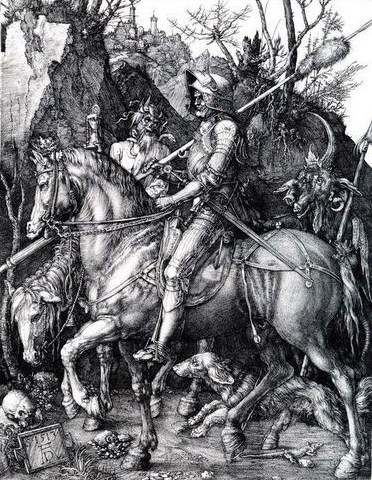Rzewski’s powerful premiere highlights Contempo concert

The Chicago premiere of a new work by Frederic Rzewski was the highlight of Saturday’s University of Chicago Presents “Contempo” concert by artists-in-residence eighth blackbird and the Pacifica Quartet.
Three of the four composers on the program were inspired by particular works of visual art; to underline the point, slides of two of the works (by Goya and Dürer) were projected on a screen to the left of the stage. Happily the music (for the most part) and the vivid performances stood on their own merits to make for a fascinating and unpredictable evening at Rudolph Ganz Hall (that little gem of a space perched atop the Auditorium Building).
Karim Al-Zand is an Iraqi-American whose beautiful Lamentations on the Disasters of War after the etchings by Goya (2006) could join a select few contemporary musical antidotes to despair.
The performance began in stillness with a slide show of details from Goya’s dark visions of Hell on earth. Their harrowing cruelty primed the audience emotionally for the actual musical experience. This turned out to be an extended lamentation for string sextet, a form which has some analogues in the tradition – one thinks of Schonberg and Strauss when hearing this piece. Al-Zand has a style of his own however, and varies the texture of his string odyssey as he ventures out from an opening moan, building to a climax before settling back to reprise the opening, closing with a sliding cry-like note from the first violin.
The evening’s major work was Rzewski’s Knight, Death and Devil (2008), receiving its Chicago premiere by eighth blackbird, who commissioned it. The 70-year-old iconic composer has turned in a 12-part vision of war, inspired by Dürer’s etching, for the superb ensemble which consists of flute, clarinet, violin, cello, percussion and keyboards – accompanied for this concert by the equally superb Pacifica strings.
With Rzewski the thematic material chosen is usually significant, and in this case he uses six songs relating to war from l’Homme Armé to The Peat-Bog Soldiers, as well as the bugle-call Taps. He weaves the themes throughout the 12 sections, giving the piece a unity which perhaps is not obvious with the wildly diverging instrumentation and tonalities.
There are concerto-grosso-like groupings of flute and strings, folk material, drum rolls, a huge crashing break-up involving a garbage can and glass (perhaps suggesting the way war breaks up life) and in the 9th episode more crashing and a collective scream from the performers which elicited nervous laughter from the audience members. The twelfth section of the piece is an extended piano solo dwindling to a closing silence.
High Wire Act (2001) by Laura Elise Schwendinger was inspired by the wire circus figures of Alexander Calder, and the work has a playfulness quite in keeping with that artist. The composer provided a full analysis of her work for the program and suffice to say the music has a minimalist feel along with a light and lively touch and was well played by piano, strings and flute.
Fantasia Sobre “Soledad” (2009), by young University of Chicago composition student, Andres Carrizo, finds its inspiration and the building blocks of its musical structure in the achingly romantic tango by Piazzolla — here deconstructed into shards of sound requiring the utmost virtuosity and tonal control from the performers. The Pacifica Quartet gave their all to music that could seem cold and abstract, yet Carrizo’s music comes to a gentle coda, closing the evening on a perfectly voiced pianissimo.
Posted in Performances

